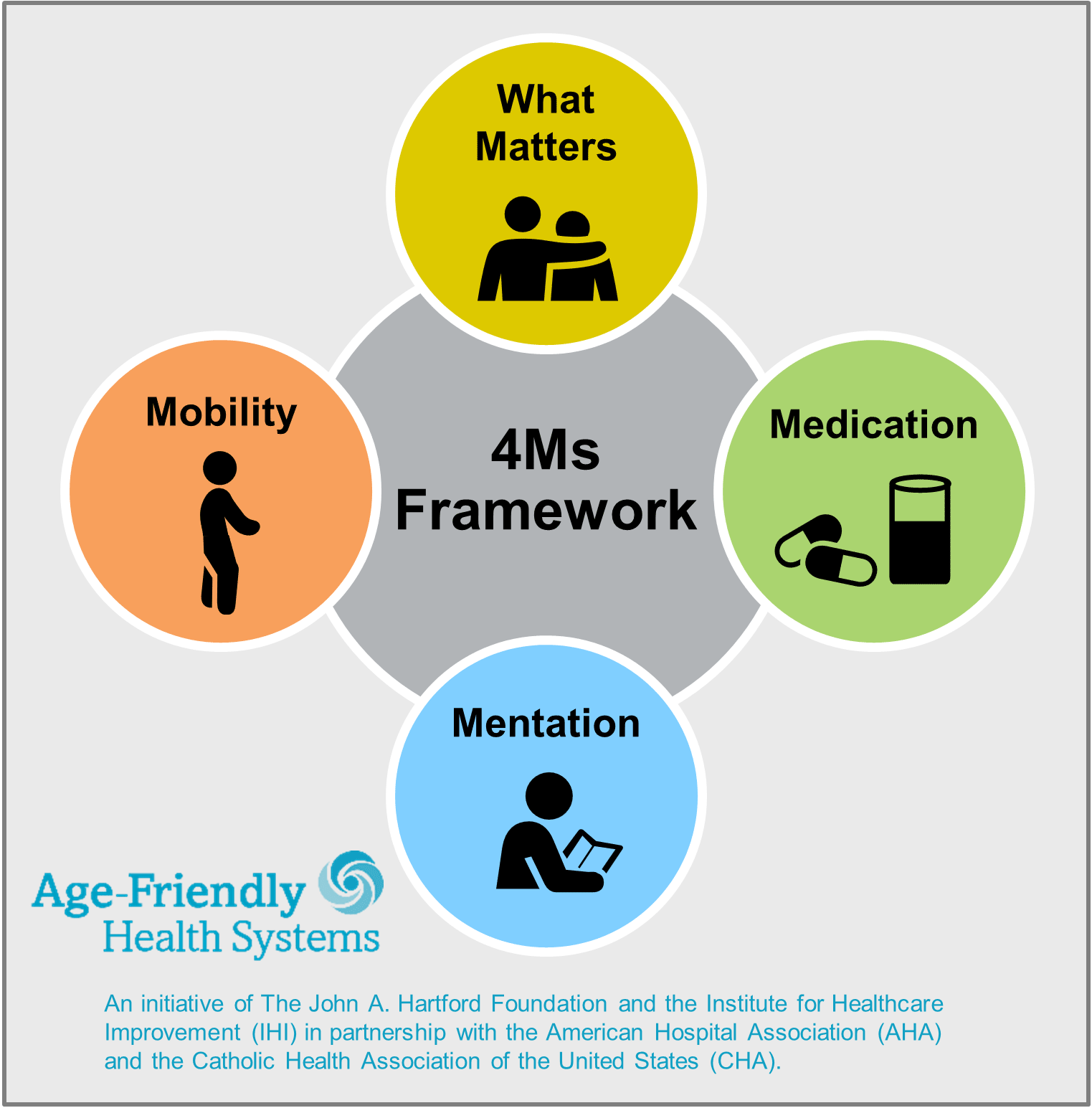
What Matters
Know and align care with each older adult’s specific health outcome goals and care preferences including, but not limited to, end-of-life care, and across settings of care.
Medication
If medication is necessary, use Age-Friendly medication that does not interfere with What Matters to the older adult, Mobility, or Mentation across settings of care.
Mentation
Prevent, identify, treat, and manage dementia, depression, and delirium across settings of care.
Mobility
Ensure that older adults move safely every day in order to maintain function and do What Matters.